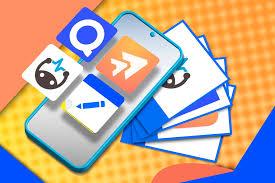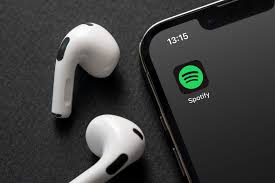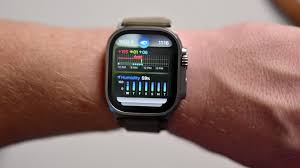As romantic as it is to stay up all night surfing social media, reading months worth of content in one night and drinking lots of coffee, it’s bad: it’s a recipe for disaster. While it can work occasionally, it’s not ideal for courses that require memorisation. For those, I rely on digital flashcards, and here are three of the best free flashcard apps.
Quizlet
One app I’ve relied on since my first GCSE is Quizlet, which helped me get straight A-stars. Its easy-to-use interface is the main reason I’ve stuck with it over the years. With many other flashcard apps, you’ll struggle with the learning process – you have to spend time building decks, formatting text and figuring out how to navigate the app. Quizlet, on the other hand, is easy to use, with everything just a tap away.
Given the number of courses high school students typically take, not everyone has the time to manually pull information out of their notes and turn it into flashcards. Quizlet offers two solutions for this: Study Guides and access to 700 million premade flashcard sets from the community.
While the premade decks are self-explanatory, Study Guides is an AI-powered feature that automatically creates a flashcard set for you once you upload your course materials. Unfortunately, Quizlet has locked many features, including Study Guides, behind its Quizlet Plus subscription. As of now, Quizlet Plus costs $2.99 per month or $7.99 monthly when billed annually.
However, since I’ve always relied on the standard flashcard mode in Quizlet, the free version is sufficient for me. When I can’t find a premade deck for a course (which is rare), I take the time to create my own flashcards, and then use the shuffle mode to study them in random order.
Quizlet’s Learn mode analyzes your current understanding of the course material and tests you accordingly with multiple-choice and written questions. I find this mode especially useful for mastering advanced theoretical concepts, and I only use it after I’ve gained some background knowledge using the standard flashcard mode.
In my opinion, if you don’t plan on taking advantage of its AI-powered features like Study Guide, Quizlet’s free version should be sufficient. If you want, you can use an AI flashcard generator like FlashKa to streamline your study process and use tools like Study Guide without paying for Quizlet Plus.
AnkiApp Flashcards
While Anki’s desktop and Android apps are free, you’ll have to pay a one-time fee of $24.99 for the iPhone and iPad apps. I’m not usually against paying for an app that’s beneficial in the long run – after all, I paid $29.99 for a lifetime subscription to Goodnotes 6, one of the best note-taking apps for stylus users. However, most of my courses are more practice-based and conceptual, so the idea of paying $24.99 for an alternative app didn’t appeal to me at all.
AnkiApp, developed by AnkiApp Inc., is not affiliated with Anki, but it’s great at revising its most famous work – Spaced Repetition. It offers three review modes: Advanced SRS, Random Shuffle, and In Created Order. My favorite is Advanced SRS, which repeatedly brings up cards I haven’t mastered, and once I’ve memorized them, they appear less frequently.
This approach ensures that information is stored in my long-term memory, not temporarily. AnkiApp uses a unique grading system from F to A. You will only get an A if you fully master the material. While this may seem strict to some, it has always motivated me to study harder!



